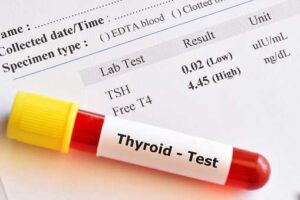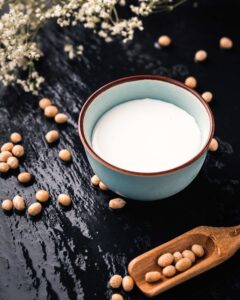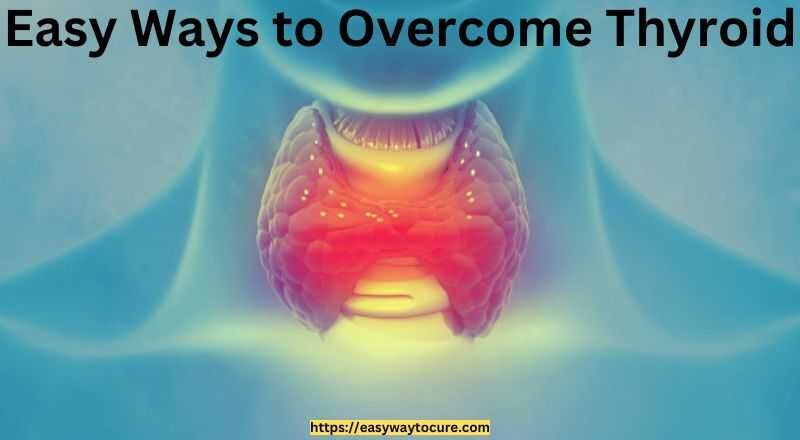The thyroid is a neck-based, butterfly-shaped endocrine gland. It is wrapped around the trachea, just below the thyroid cartilage –Adam’s apple. It is a hormone gland.
The two major hormones of the thyroid are triiodothyronine T3 and thyroxine T4. The numbers 3 and 4 indicate the number of iodine atoms present in a molecule of each hormone. T3 and T4 are collectively referred to as thyroid hormones. Thyroid hormone secretion is under the control of the thyroid-stimulating hormone TSH from the anterior pituitary.
What’s the importance of thyroxin hormones?

Thyroxin hormones help to regulate many body functions constantly releasing thyroid hormones into the blood. What is more interesting about these? Thyroid hormones are that they have an impact on all aspects of our health.
Thyroid hormones act to increase the body’s metabolic rate. They stimulate appetite, digestion, breakdown of nutrients, and absorption. These also increase oxygen consumption by raising the breathing rate, heart rate, and contraction strength. They take a major role in growth also. As a result, the body’s heat production is increased. In order to keep the body warm throughout the winter, thyroid hormone production often increases. When it is cold outside or during pregnancy that the thyroid simply produces more hormones just for the body’s needs.
Thyroid hormones are also important for bone growth and fetal brain development.
Read Also: Best Home Remedies for Anemia
Problems with thyroid hormones

Sadly, there are two main categories of thyroid issues because the thyroid gland occasionally manufactures hormones improperly.
- Hypothyroidism
- Hyperthyroidism
Hypothyroidism

In hypothyroidism, the gland is underactive and does not produce enough thyroid hormones. As a result, metabolic rates are low and it causes slow respiratory and cardiovascular activities.
Some common symptoms of hypothyroidism include fatigue sudden weight gain, cold intolerance, slow heart rate, heavy menstrual bleeding, puffiness of the face, irregular period, excessive hair growth on the face, and neck edema at the base. Some symptoms developed over several years.
Hypothyroidism is a glandular malfunction. Its causes can be traced to the genetic factor of response to hypothyroidism medication, pregnancy iodine deficiency, and autoimmune diseases such as type 1 diabetes Hypothyroidism generally affects more women than men.
In an attempt to fix the low levels of thyroid hormones, the pituitary produces more TSH to further stimulate the thyroid gland. Despite being unable to produce hormones without iodine, the thyroid grows in response to TSH. Hypothyroidism is managed with thyroxine hormone replacement.
Foods to avoid for hypothyroidism

Hypothyroidism patients should avoid cruciferous vegetables like broccoli and cauliflower. Also avoid millet, soya products, sweet potato, tea, coffee, canola oil, fried foods, processed food, refined sugar, alcohol, radish, kale.
Foods to intake for hypothyroidism

Hypothyroidism patients should intake iodine-rich diet food with selenium which is a catalyst in producing thyroid hormones. 8 to 10 glasses of water should be consumed. Also, lemon juice, milk products, whole unrefined grains, potatoes, strawberries, garlic, onion, sunflower seeds, sesame seeds cashew nuts almonds walnuts and pumpkin seeds, oatmeal, egg white, rice, fortified pasta, and cereals help to manage hypothyroidism.
In cases of hypothyroidism, there is a tendency to feel lazy and lethargic. So activities such as brick walking, swimming, and badminton will help to manage it.
Read Also: Healthy Alkaline Foods You Must Consume
Hyperthyroidism

Too many hormones are produced by the thyroid gland, which makes it overactive. This makes the body’s metabolism faster.
Common symptoms of hyperthyroidism include sudden weight loss, increased appetite, irregular heartbeat, sweating, excessive urination irritability, insomnia, diarrhoea, nervousness, and anxiety.
Hyperthyroidism also is a glandular malfunction. Its most common cause is graves’ disease which is an autoimmune disorder. Other causes are hyperfunctioning thyroid nodules and personal history of certain chronic illnesses like type 1 diabetes.
Hyperthyroidism may be managed with drugs that suppress thyroid function, radioactive iodine that selectively destroys the thyroid gland, or surgery that removes part of the gland.
Foods to avoid for hyperthyroidism

Hypothyroidism patients should avoid iodine-rich food products, iodide-fortified salts, alcohol, fish, shellfish, and egg yolks.
Foods to intake for hyperthyroidism

Hypothyroidism patients should take proteins, vitamin b, iron, antioxidants, and vegetables. Try to include in your diet cabbage, cauliflower, broccoli, spinach, almonds, walnuts, soya, and ginger.
In cases of hyperthyroidism, there is restlessness so listening to calm the mind, playing board games, painting, taking a long bath, and meditating are recommended.
In case of constipation place a hot water bag on your throat to stimulate your gland, put a hot water bag even on your abdomen keep to your body warm for hyperthyroidism.
Read Also: 14 Best Foods for Nervous System
Yoga for thyroid problems

Yogic techniques help to cope with the symptoms much better and are not a substitute for medication. However, in some situations, making lifestyle modifications and practicing yoga may help to lessen the need for medication. Over a period of time, yoga significantly focuses on four important lifestyle aspects to manage any ailment. The food we have, relaxation, recreation behavioral pattern and which are thought processes first comes. To our diet and nutrition, a satwik is important as it is low in calories and high in fiber. it is fresh.
Simple neck exercises are beneficial. Practice backward-bending asanas as they stretch the thyroid glands for example bhujangasana, kustrasan and margariasm. The throat area can be strengthened by practicing sivasana inversions such as sarvangasana viprit karni and halasana balances the thyroid gland. Learn and practice yogic kriyas.
Thyroid abnormalities can occasionally coexist with other conditions like diabetes or heart illness. So care has to be taken. When selecting your asanas, pranayamas, and kriya, bear this in mind, or practice with an experienced teacher.
Read Also: Tips for Better Breathing
Finally

Rest and relaxation is good to pursue a hobby like gardening, spending some time with family, taking walk in natural and calm surroundings and practicing a conscious relaxation technique. If the skin tends to dry up apply coconut oil or aloe vera gel. Go out in the morning and in the evening with mild sunlight for 10 to 15 minutes every day.
If you suffer from depression due to your condition seek the company of positive-minded people who will make you positive-minded. Write 10 positive points in your diary every day remember that nothing is permanent even your pain, your problems are not permanent. They have come to go not to stay.
